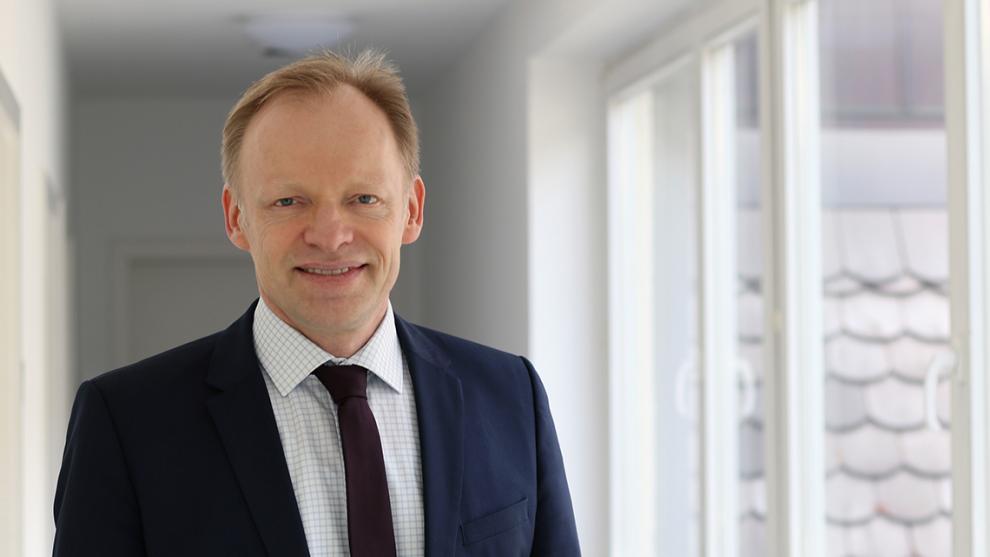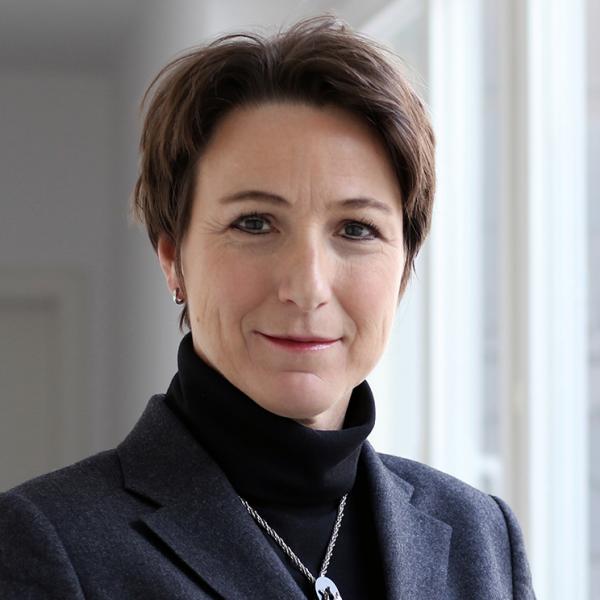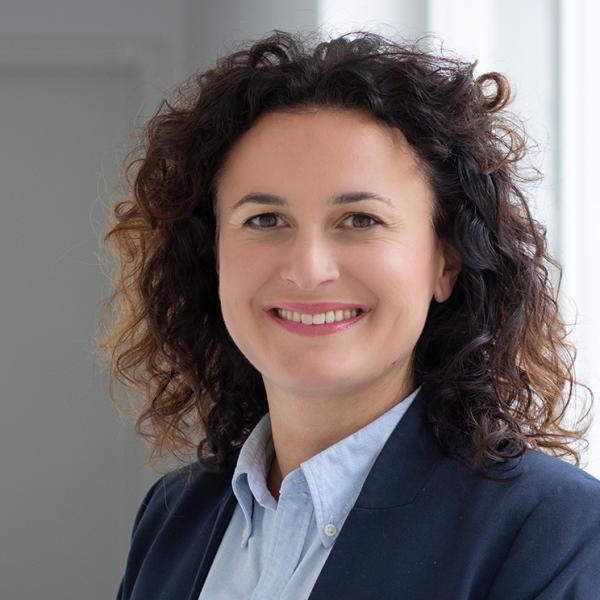ifo Media Center
The ifo Institute invites you to participate in the discussion of interesting economic topics via the Internet. In our ifo Media Center a whole series of remarkable events are available and can be viewed in full length. We also record selected speeches and presentations given by employees or at events and make them available in our Media Center.

Business Climate in Germany’s Chemical Industry Improves Slightly
In February, the business climate in the German chemical industry brightened a little. The indicator rose to -15.7 points, up from -16.1 points* in January, due to better assessments of the current business situation. Expectations, however, turned somewhat more pessimistic again. “The climate in the German chemical industry is still rough, but there have also been some surprising rays of hope,” says industry expert Anna Wolf of the ifo Institute.
Improved Sentiment among the Self-Employed in Germany
Sentiment among the self-employed in Germany has improved. The Business Climate Index rose to -14.6 points* in February, up from -22.6 points* in January. This is a finding from the latest ifo survey for this segment (“Jimdo-ifo Business Climate Index for the Self-Employed”). The rise was due to less pessimistic expectations. However, the self-employed are particularly dissatisfied with their order backlog, which continues to shrink. “This segment is still far from optimistic,” says ifo expert Katrin Demmelhuber.
l’UE doit prendre en compte l’impact économique de la lutte contre le changement climatique
L’Institut ifo, EconPol Europe et la Table ronde européenne sur le changement climatique et la transition durable (ERCST) ont exhorté la future Commission européenne à considérer la lutte contre le changement climatique comme une question de politique économique, industrielle et de concurrence. « Les coûts liés à la limitation des émissions de CO2 et les opportunités économiques qui découlent de l’apparition de nouvelles filières nécessitent une nouvelle approche », écrivent-ils dans un rapport publié vendredi à Bruxelles. « Les analyses économiques doivent prendre en compte tous les effets négatifs et positifs de la politique climatique, y compris ses conséquences possibles sur la consommation des ménages, la compétitivité industrielle et les chaînes d’approvisionnement », explique Clemens Fuest, président de l’Institut ifo. La nouvelle Commission doit préserver la compétitivité de l’Europe et la résilience de son économie.
The EU Should Consider the Economic Impact of Climate Action
The ifo Institute, EconPol Europe, and the European Roundtable on Climate Change and Sustainable Transition (ERCST) have urged the future European Commission to consider climate action also as a matter of economic, industrial, and competition policy. “This is due to the cost implications of CO2 restrictions as well as the economic opportunities created by emerging industries,” they wrote in a report published in Brussels on Friday. “The EU’s economic analysis must comprehensively consider both the negative and positive effects of climate policy, including the impact on people’s consumption opportunities, on industrial competitiveness, and on supply chains,” says ifo President Clemens Fuest. The next Commission must ensure Europe’s competitiveness and the resilience of its economy.
Companies cut investments by 8.4% because of higher interest rates
Over the past 18 months, companies in Germany have reduced their planned investments by an average of 8.4% due to higher interest rates. This is a finding from the ifo Business Survey of December 2023, which has now been published in ifo Schnelldienst. “Companies are responding to higher interest rates by investing significantly less in energy efficiency and renewables. They are also reducing their research and development spending,” says ifo researcher Manuel Menkhoff.
L’Institut ifo abaisse ses prévisions de croissance en Allemagne à 0,2 %
L’institut Ifo vient de réduire ses prévisions de croissance pour 2024 à 0,2 %, alors qu’il tablait encore sur 0,7 % en janvier et 0,9 % en décembre. Pour 2025, il relève toutefois ses estimations à 1,5 %, soit une hausse de 0,2 point. « La réticence des consommateurs, les taux d’intérêt élevés, la hausse des prix, les mesures d’austérité prises par le gouvernement et la faiblesse de la conjoncture mondiale freinent la croissance économique de l’Allemagne et provoquent une nouvelle récession hivernale. La disparition progressive de la pression sur les taux d’intérêt et sur les prix et les effets de la hausse du pouvoir d’achat des consommateurs devraient entraîner une amélioration des performances économiques à partir du milieu de l’année », explique Timo Wollmershäuser, directeur des enquêtes conjoncturelles de l’Institut ifo.
ifo Institute Cuts Growth Forecast for Germany to 0.2%
The ifo Institute has reduced its growth forecast for the current year to 0.2%, down from 0.7% in January and 0.9% in December. But for next year, it raised its growth estimate by 0.2 percentage points to 1.5%. “Consumer restraint, high interest rates and price hikes, the government’s austerity measures, and the weak global economy are currently dampening the economy in Germany and leading to another winter recession. Economic output will accelerate toward the middle of the year as interest rate and price burdens gradually disappear and consumers’ purchasing power increases,” says Timo Wollmershäuser, Head of Forecasts at ifo.
Women Disadvantaged in Bonus Payments as Well
The pay gap for women in Germany, Austria, and Switzerland exists not just in base salary but in bonus payments as well. This has been shown by analyses conducted by the ifo Institute and the management consultancy Mercer for over 270 companies in the three countries. In Germany, women receive an average of 6.1% less in bonus payments. In Austria, the gap between men and women is 7.2%. Companies in Switzerland pay women an average of 5.2% less in bonuses.
Working from Home Firmly Established in Germany
In February, 24.1% of employees in Germany worked from home at least part of the time. This is the finding of an ifo Institute survey of just under 9,000 companies. “The proportion has remained almost constant for two years,” says ifo expert Jean-Victor Alipour. “Regardless of the debates at individual companies about returning to the office, working from home has become firmly established in Germany.”
A Small Dent in the German Automotive Industry’s Business Climate
The business climate in Germany’s automotive industry deteriorated slightly in February after a noticeable brightening in January, according to the ifo Business Survey. “However, with a value of -10.1 points, the industry index is still well above where it was when it bottomed out in 2023,” says Anita Wölfl, a specialist at the ifo Center for Industrial Organization and New Technologies.
Institut ifo : légère dégradation du climat des affaires dans l’automobile
Le moral des constructeurs automobiles allemands s’est légèrement détérioré en février, après une amélioration sensible en janvier. C’est ce que révèlent les enquêtes conjoncturelles réalisées par l’Institut ifo. « À – 10,1 points, l’indice du secteur reste toutefois nettement supérieur à son point le plus bas enregistré en 2023 », indique Anita Wölfl, chercheuse au Centre ifo de l’organisation industrielle et des technologies nouvelles.
Material Shortages Worsen Somewhat in German Manufacturing
Material shortages in German manufacturing have become slightly worse. In February, 14.6% of the companies surveyed reported shortages, up from 12.5% in January. These are findings from the ifo Institute’s latest survey. “In addition to the ongoing conflict in the Red Sea, the rail strike in Germany has also led to a shortage of raw materials and intermediate products at some companies,” says Klaus Wohlrabe, Head of Surveys at ifo. “Nevertheless, the supply bottlenecks are not a fundamental problem for industrial production. At present, we’re mainly seeing delays within supply chains, not a total breakdown.”
ifo Business Climate Eastern Germany Cools Slightly (February 2024)
The ifo Business Climate Index Eastern Germany saw a small decline in February. The barometer of business sentiment for the regional economy in eastern Germany fell from 89.0 points in January to 88.5 points in February. The eastern German companies surveyed provided assessments of their business situation that were somewhat worse than the previous month and also lowered their business expectations slightly.
Price Expectations of German Companies Fall
Fewer companies in Germany are looking to raise their prices. In February, the ifo price expectations slipped to 15.0 points, down from 18.8 points* in January. This was mainly due to the consumer-related sectors, where price expectations fell from 32.4 points* to 28.9 points. “This suggests that in the coming months, inflation will continue to decline,” says Timo Wollmershäuser, Head of Forecasts at ifo.
ifo Employment Barometer Falls (February 2024)
Companies in Germany are looking to hire less staff. In February, the ifo Employment Barometer fell to 94.9 points, down from 95.5 points in January. “With the economy so sluggish, companies are putting off hiring new people,” says Klaus Wohlrabe, Head of Surveys at ifo. “Even layoffs can no longer be ruled out.”
Institut ifo : hausse des prévisions en matière d’exportations
Le moral des exportateurs allemands s’est légèrement amélioré. L’indice ifo des prévisions en matière d’exportations est passé de – 8,5 points en janvier à – 7,0 points en février. « Actuellement, les entreprises exportatrices allemandes ne profitent quasiment pas de la conjoncture économique mondiale », estime Klaus Wohlrabe, directeur des enquêtes de l’Institut ifo. « Il y a encore un large potentiel à exploiter. »
ifo Export Expectations Rise (February 2024)
Sentiment in the German export industry has brightened somewhat. The ifo Export Expectations rose to -7.0 points in February, up from -8.5 points in January. “The German export economy is hardly benefiting at all from current global economic developments,” says Klaus Wohlrabe, Head of Surveys at ifo. “There’s still a lot of room for improvement.”
L’indice ifo du climat des affaires enregistre une légère hausse (Février 2024)
Le moral des dirigeants allemands s’est légèrement amélioré, l’indice ifo du climat des affaires étant passé à 85,5 points, contre 85,2 points en janvier. Cette embellie est due à des attentes un peu moins pessimistes alors que l’évaluation de la situation actuelle reste inchangée. Dans ce domaine, le nombre de réponses positives et négatives est à peu près le même. La conjoncture se stabilise à un faible niveau.
ifo Business Climate Index rises (February 2024)
Sentiment among German companies has brightened somewhat. The ifo Business Climate Index rose to 85.5 points in February, up from 85.2 points in January. This is due to slightly less pessimistic expectations. Assessments of the current situation remained unchanged – positive and negative responses here were nearly in balance. The German economy is stabilizing at a low level.




